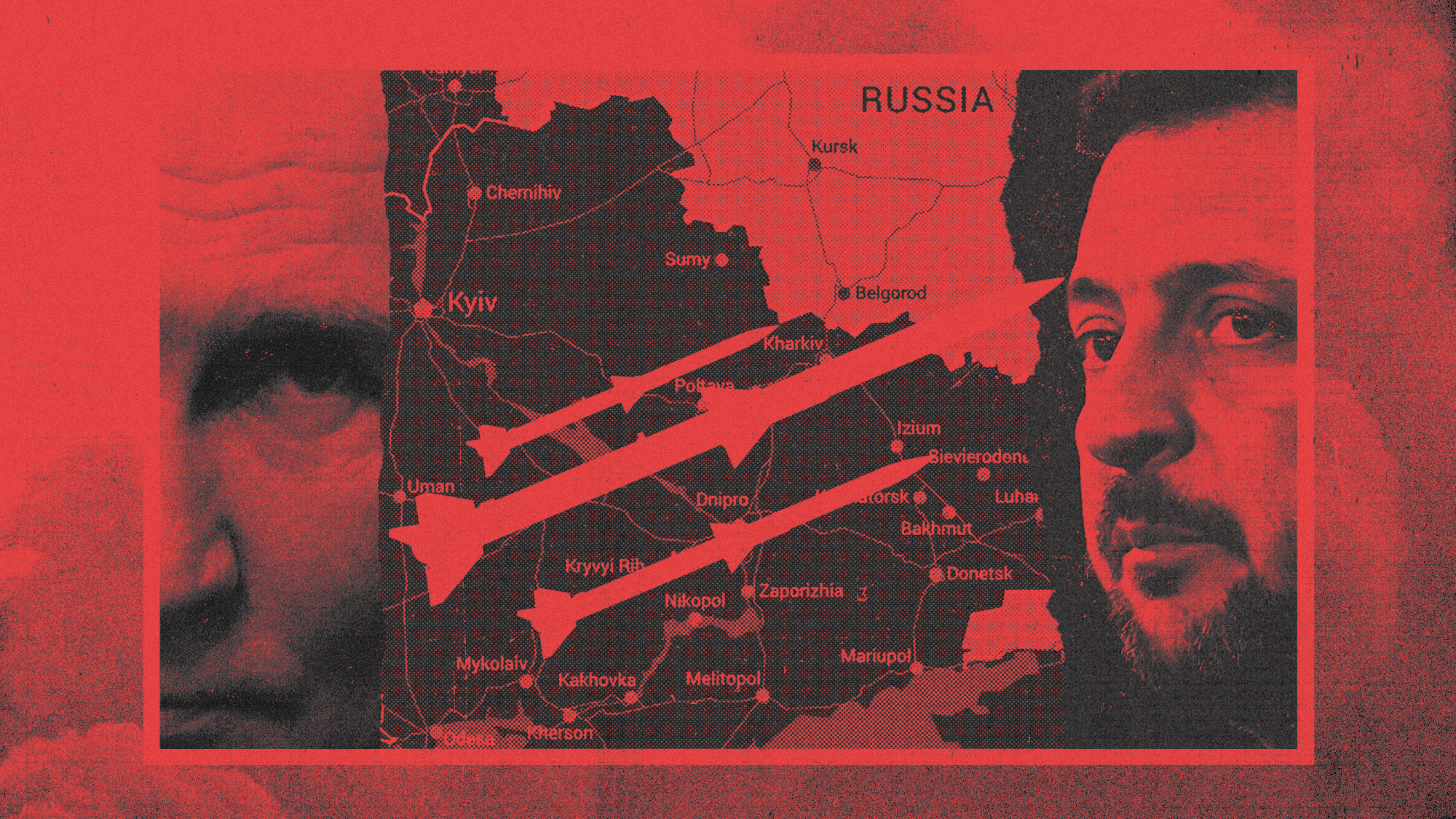Missile escalation: will long-range rockets make a difference to Ukraine?
Kyiv is hoping for permission to use US missiles to strike deep into Russian territory

A free daily email with the biggest news stories of the day – and the best features from TheWeek.com
You are now subscribed
Your newsletter sign-up was successful
A shift in Western policy could soon allow Ukraine to strike long-range targets in Russia.
Kyiv has been keen to convince the US, Britain, and its other allies to enable it to hit military targets inside Russia, but the US has consistently resisted the use of long-range ballistic missiles on internal Russian targets over "fears of escalation", said Larisa Brown in The Times.
Foreign Secretary David Lammy and his US counterpart Antony Blinken arrived in Kyiv this week to discuss the potential to lift these restrictions with Ukrainian president Volodymyr Zelenskyy. When asked about the possibility of long-range missiles being used inside Russia, President Biden said that his administration was "working that out now".
The Week
Escape your echo chamber. Get the facts behind the news, plus analysis from multiple perspectives.

Sign up for The Week's Free Newsletters
From our morning news briefing to a weekly Good News Newsletter, get the best of The Week delivered directly to your inbox.
From our morning news briefing to a weekly Good News Newsletter, get the best of The Week delivered directly to your inbox.
Ukraine believes being able to use these weapons, countering the long-range strikes Russia carries out with no restrictions, will bring it close to ending the war. Kyiv will hope the increasing attacks on its cities and reports that Iran has provided Russia with close-range ballistic missiles could begin "shifting the US stance on its policy", said The Times.
What did the commentators say?
Enabling Ukraine to strike long-range targets would "force Moscow to move its aircraft further back" and restrict its ability to "reach the front line" and launch guided explosives called "glide bombs", said The Times.
But a change in policy is nevertheless "unlikely to alter the course of the war entirely", given Ukraine is "unlikely to have huge numbers of the weapons" which would be needed to make a significant difference. However, "something has to change on the battlefield" for Ukraine to succeed over Russia, and fears of further escalation in using the long-range rockets are perhaps "overstated".
That is a "justification" that has "become increasingly strained" as the attritional war has dragged on, said The Economist. The recent missile and drone attacks from Russia have been part of a "systematic campaign to make life as miserable as possible for ordinary Ukrainians this winter" but counter-strikes on specific targets could go some way to relieving that pressure and have "serious consequences for Russia's war effort".
A free daily email with the biggest news stories of the day – and the best features from TheWeek.com
Strikes deep into Russia could have only a "short window" to make a "real difference" to Ukraine's military effort, said Stephen Biddle at Foreign Affairs. Moreover, the capability will "not transform the military situation on the ground" and the question remains whether the "modest military benefits are worth the escalatory risk".
In lieu of a favourable decision by the US, Ukraine has been "working to implement its own missile program" that could potentially solve this issue, and has already deployed a home-built ballistic missile in a "successful test" in August, said Oleksandr Kunyzkyj at DW. The hope is that if it continues to prove successful, Ukraine can "reduce its dependence on weapons supplies from its partners".
What next?
It has "become apparent that US technology" was involved in the UK and France's long-range ballistic missiles, said The Guardian, and it was Washington that "held back" from allowing its use "for strikes inside Russian territory".
The pressing issue that could force the US's hand on lifting restrictions is the report that Iran has supplied Russia with short-range ballistic missiles that the Kremlin could use "within weeks", according to US Secretary of State Antony Blinken.
It amounts to a "serious step-up" in military assistance from Tehran, said Deborah Haynes at Sky News, which will further increase "Western sanctions and outrage". It could however result in Ukraine "finally getting the green light" to use the US and British missiles to "strike inside Russia".
Richard Windsor is a freelance writer for The Week Digital. He began his journalism career writing about politics and sport while studying at the University of Southampton. He then worked across various football publications before specialising in cycling for almost nine years, covering major races including the Tour de France and interviewing some of the sport’s top riders. He led Cycling Weekly’s digital platforms as editor for seven of those years, helping to transform the publication into the UK’s largest cycling website. He now works as a freelance writer, editor and consultant.